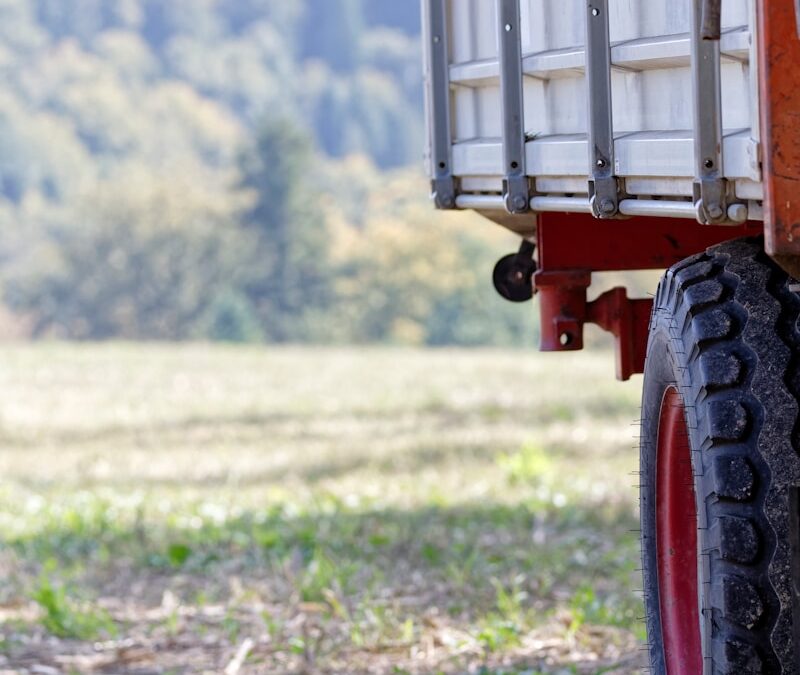How Blockchain is Revolutionizing Swiss Agriculture
The Role of Blockchain in Crop Management
The integration of blockchain in Swiss agriculture is transforming the way crops are managed by providing real-time data, improving decision-making, and offering unparalleled transparency across the supply chain. In a country known for its commitment to high-quality agricultural products, blockchain is enabling farmers to optimize crop yields, monitor growing conditions, and ensure that best practices are consistently followed. By leveraging blockchain, Swiss farmers gain access to accurate and immutable data that can be shared securely across all stakeholders, from seed suppliers to consumers.
Blockchain’s decentralized ledger records every step in the crop management process, from planting to harvesting, ensuring that each action is traceable. This real-time visibility allows farmers to track weather patterns, soil conditions, and water usage, making adjustments as needed to maximize productivity. Additionally, blockchain enables more efficient resource allocation, reducing waste and lowering costs for farmers while maintaining sustainable practices. These improvements lead to a more resilient agricultural system that can meet the demands of both domestic and international markets.
Improving Supply Chain Transparency with Blockchain
One of the most significant advantages of blockchain in Swiss agriculture is the increased transparency it brings to the supply chain. Traditionally, agricultural supply chains are complex, involving numerous intermediaries and processes that can obscure the origin and quality of food products. With blockchain, every transaction and movement of goods is recorded in a secure, decentralized ledger, providing a clear and transparent view of the entire supply chain. This transparency is crucial for ensuring food safety and building consumer trust in Swiss agricultural products.
Swiss farmers and producers are now able to verify the provenance of their products at every stage, from farm to table. This traceability is essential for guaranteeing that food meets regulatory standards, reducing the risk of fraud or contamination. For consumers, blockchain offers a way to verify the authenticity of products, ensuring that they are purchasing food that is sustainably sourced and produced according to Swiss quality standards. The increased transparency enabled by blockchain strengthens the reputation of Swiss agriculture, particularly in global markets where trust and food safety are paramount.
Food Traceability and Sustainability Gains
The implementation of blockchain in Swiss agriculture has also led to significant advancements in food traceability and sustainability. With blockchain technology, Swiss farmers and producers can now provide a detailed record of how and where crops were grown, harvested, and processed. This level of traceability ensures that consumers have access to accurate information about the food they consume, which is particularly important in today’s health-conscious and sustainability-focused market.
Blockchain’s ability to trace food from farm to fork helps reduce food fraud and ensures that sustainable practices are followed throughout the agricultural process. For instance, organic certifications and fair-trade labels can be verified with blockchain, allowing consumers to confidently choose products that align with their values. Additionally, the detailed data captured by blockchain can be used to improve sustainability practices, such as optimizing water usage, reducing pesticide application, and minimizing the carbon footprint of agricultural operations. These gains in traceability and sustainability contribute to a more robust and responsible food system in Switzerland.
The Future of Blockchain in Swiss Agriculture
Blockchain’s Impact on Agricultural Efficiency
The integration of blockchain in Swiss agriculture has the potential to revolutionize agricultural efficiency. By streamlining operations and providing real-time insights, blockchain technology enables Swiss farmers to make more informed decisions that improve productivity and reduce waste. The automation of processes through smart contracts also eliminates the need for intermediaries, reducing transaction costs and enhancing the overall efficiency of the agricultural supply chain.
For example, smart contracts can automatically trigger payments once a shipment of crops reaches a specific destination, removing the need for manual verification and reducing the time required to complete transactions. This increased efficiency benefits not only farmers but also suppliers, retailers, and consumers, creating a more agile and responsive agricultural sector. Swiss agriculture is well-positioned to lead in this area, as blockchain continues to evolve and offer new opportunities for optimizing farm operations and supply chains.
Enhancing Food Safety through Blockchain Technology
One of the most critical areas where blockchain in Swiss agriculture is making a significant impact is food safety. By providing an immutable record of every step in the agricultural process, blockchain ensures that food products meet stringent safety standards. In the event of a contamination issue, blockchain enables rapid tracing of the affected products, allowing for swift action to prevent the spread of harmful goods.
In Switzerland, where food quality is highly valued, blockchain’s contribution to food safety is particularly important. The technology’s ability to track every detail of the food production process ensures that all safety protocols are followed, from the use of pesticides to the conditions under which crops are transported and stored. For Swiss businesses exporting agricultural products, blockchain serves as a vital tool for meeting international food safety regulations, ensuring that Swiss goods continue to be trusted and sought after in global markets.
Conclusion: The Long-Term Potential of Blockchain in Swiss Agriculture
The integration of blockchain in Swiss agriculture is paving the way for a more efficient, transparent, and sustainable agricultural sector. By improving crop management, enhancing supply chain transparency, and advancing food traceability, blockchain technology is addressing some of the most pressing challenges in modern agriculture. As Swiss farmers and producers continue to adopt this technology, the benefits will only increase, leading to a more resilient and innovative agricultural industry.
Blockchain’s potential to streamline operations, reduce fraud, and ensure food safety will position Switzerland as a global leader in agricultural technology. As the demand for transparency and sustainability grows, blockchain will play an increasingly vital role in meeting these expectations, ensuring that Swiss agriculture remains competitive and trusted worldwide. The future of Swiss agriculture, empowered by blockchain, is one of innovation, efficiency, and integrity.
—
#Blockchain, #SwissAgriculture, #CropManagement, #SupplyChainTransparency, #FoodTraceability, #BlockchainTechnology, #SustainableFarming, #AgriculturalTechnology, #Switzerland

